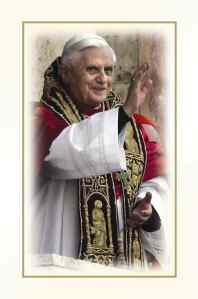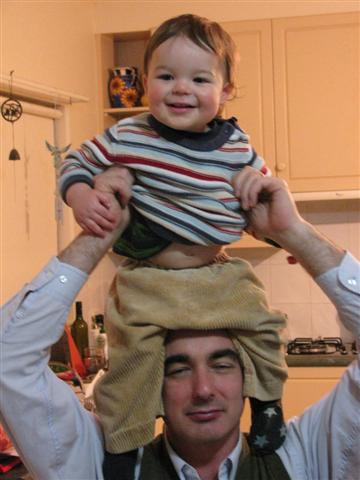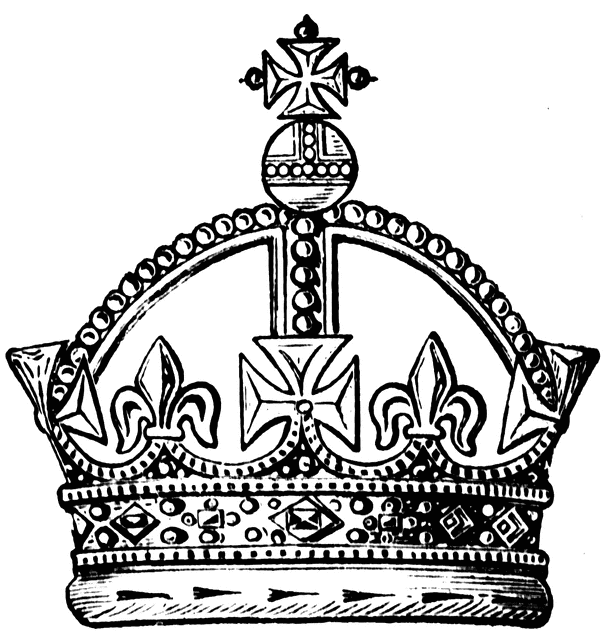[caption id="attachment_2034" align="alignleft" width="100" caption="Sarah"]

[/caption]
Welcome to Master Theologian! Tonight's contestant will be faced with the challenge of his theological career. He must demonstrate to the whole world - to bishops, priests, deacons, men and women religious, the lay faithful and ALL people of good will - why he deserves the title "Master Theologian".
[caption id="attachment_2037" align="alignleft" width="87" caption="Gary"]

[/caption]
A Master Theologian must demonstrate competance that sets him head and shoulders above the competition. He must show an all-round mastery of a wide range of different subject matters.
[caption id="attachment_2036" align="alignleft" width="77" caption="George"]

[/caption]
And yet at the same he has to be able to pull it off in his own particular style that sets him apart from the rest of the flock.
[caption id="attachment_2034" align="alignleft" width="100" caption="Sarah"]

[/caption]
Here is tonight's challenge. The Contestant will be given a mystery theme and a list of 20 set ingredients. He must incorporate all the set ingredients into the mystery theme.
[caption id="attachment_2035" align="alignleft" width="97" caption="Matt"]

[/caption]
And yet, as always, there is a catch. We want to see something of our contestants own particular style and character in what he finally serves up. Don't bore us with just any old rehash of an old recipe. We want something ORIGINAL, which shows that tonight's contestant really is deserving of the title "Master Theologian".
[caption id="attachment_2034" align="alignleft" width="100" caption="Sarah"]

[/caption]
Introducing tonight's contestant: Pope Benedict XVI!
[caption id="attachment_2039" align="aligncenter" width="198" caption="Pope Benedict"]

[/caption]
[Wild Applause]
[caption id="attachment_2037" align="alignleft" width="87" caption="Gary"]

[/caption]
Pope Benedict. Are you ready for this?
[caption id="attachment_2039" align="alignleft" width="99" caption="Pope Benedict"]

[/caption]
Yes, I believe so. I think the time is right.
[caption id="attachment_2036" align="alignleft" width="77" caption="George"]

[/caption]
Are you nervous?
[caption id="attachment_2039" align="alignleft" width="99" caption="Pope Benedict"]

[/caption]
No, no. I have prepared long and hard for this. I believe it is within my competancy, that I have the authority to teach, and that the voice of the Church, expert in humanity, needs to be heard.
[caption id="attachment_2035" align="alignleft" width="97" caption="Matt"]

[/caption]
You sound pretty sure of yourself. Maybe you won't be when you hear the list of ingredients. George?
[caption id="attachment_2036" align="alignleft" width="77" caption="George"]

[/caption]
Pope Benedict: Here is the list of your set ingredients:
Employment and labour, Life ethics, Development programs, Original sin, Globalisation, Political authority, Civil society, Business ethics, Creation, Economics, Marriage and family, Human nature, Subsidiarity and solidarity, Technology, Finance, Population growth, the Environment, Immigration, Education and Human rights.
[caption id="attachment_2037" align="alignleft" width="87" caption="Gary"]

[/caption]
Given that list of ingredients, Pope Benedict, can you guess what the mystery theme might be?
[caption id="attachment_2039" align="alignleft" width="99" caption="Pope Benedict"]

[/caption]
Yes, I think I can.
[caption id="attachment_2037" align="alignleft" width="87" caption="Gary"]

[/caption]
Are you nervous now?
[caption id="attachment_2039" align="alignleft" width="99" caption="Pope Benedict"]

[/caption]
Perhaps just a little.
[caption id="attachment_2035" align="alignleft" width="97" caption="Matt"]

[/caption]
Pope Benedict, you have your twenty set ingredients. You will be given 5 minutes in the pantry to chose out four additional ingredients to add to these so that you can give your own particular flavour and style to the task. Before we reveal the mystery theme, tell us what four ingredients you think you will add?
[caption id="attachment_2039" align="alignleft" width="99" caption="Pope Benedict"]

[/caption]
That is fairly simple. I will chose Charity and Truth, Faith and Reason.
[caption id="attachment_2037" align="alignleft" width="87" caption="Gary"]

[/caption]
Given your earlier form, that's fairly predictable. But don't you think that might just be a little outside the theme that seems to be developing here?
[caption id="attachment_2039" align="alignleft" width="99" caption="Pope Benedict"]

[/caption]
No, I have always found I work best when I write from the heart. These four ingredients express a lot of who I am and what I am about. I am fairly confident the final result will reflect this.
[caption id="attachment_2034" align="alignleft" width="100" caption="Sarah"]

[/caption]
Pope Benedict, once your time begins, you will have two and half hours to come up with the final product using all the set ingredients. Matt will now reveal for you the mystery theme.
[caption id="attachment_2035" align="alignleft" width="97" caption="Matt"]

[/caption]
Your mystery theme tonight is... The Social Encyclical!
[caption id="attachment_2034" align="alignleft" width="100" caption="Sarah"]

[/caption]
Pope Benedict, your time starts now.
[caption id="attachment_2039" align="alignleft" width="99" caption="Pope Benedict"]

[/caption]
"Charity in truth, to which Jesus Christ bore witness by his earthly life and especially by his death and resurrection, is the principal driving force behind the authentic development of every person and of all humanity...

 [/caption]
[/caption] [/caption]
[/caption] [/caption]
[/caption] [/caption]
[/caption] [/caption]
[/caption] [/caption]
[/caption]

 [/caption]
[/caption]
 [/caption]
[/caption]
.JPG)







